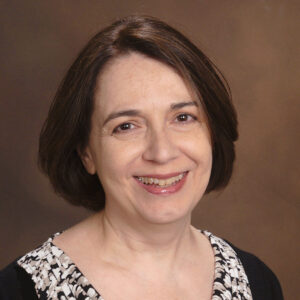Melanie Kuhn
Jean Adamson Stanley Faculty Chair in Literacy
Literacy and Language Education,
Curriculum and Instruction
Email:
melaniek@purdue.edu
Address:
Steven C. Beering Hall of
Liberal Arts and Education
100 N. University Street
West Lafayette, Indiana 47907-2098
BRNG 4152
Profile
Research & Publications
My research builds on a belief in the importance of reading as fundamental to learner success. Specifically, I have focused on instructional approaches designed to close the achievement gap between struggling readers and their more successful peers. At present, I am looking at the relationship between reading fluency, vocabulary, conceptual knowledge, and comprehension as well as the development of methods that will ensure students access to challenging texts.
